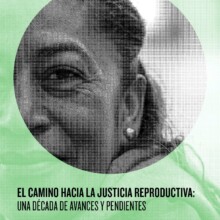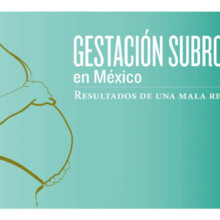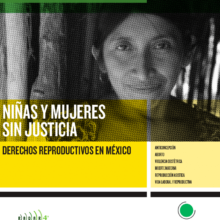Las Técnicas de Reproducción Humana Asistida (TRHA) posibilitan cada año el nacimiento de miles de niños y niñas en todo el mundo. Se trata de intervenciones que incluyen el manejo in vitro de ovocitos y espermatozoides humanos o de embriones para la reproducción. El uso de TRHA como respuesta, originalmente, a un problema médico, infertilidad o esterilidad, actualmente resulta limitado. El acceso a estas técnicas no sólo es relevante para quienes tienen un problema de salud, sino también para las personas que, por diferentes razones, no puedan lograr un embarazo sin asistencia, como las parejas del mismo sexo o las personas solas.
En México, a pesar de que desde hace más de cuatro décadas se realizan TRHA en clínicas y hospitales públicos y privados, hasta este momento no existe un marco normativo integral que regule, a nivel general, el acceso a estos procedimientos reproductivos y su práctica. Esto produce incertidumbre jurídica para las partes involucradas, y abre la puerta a actos arbitrarios y discriminatorios contra quienes buscan servicios de reproducción asistida.
Es fundamental que la normativa que se adopte se integre desde una perspectiva de género democrática, respetuosa de los derechos humanos y del progreso científico, de conformidad con los estándares más altos de protección reconocidos en la Constitución y en los tratados internacionales ratificados por México. También, que la regulación de los aspectos generales de la provisión de los servicios de reproducción asistida prevea los aspectos médicos y técnicos de la práctica, y que sean los congresos locales los que regulen las consecuencias civiles y familiares que se derivan del uso de las TRHA.
Nuestro trabajo
Uno de los casos que acompañamos y que fue resuelto por la SCJN evidencia la necesidad de regular este tema:
María Teresa / Negativa de acceso a TRHA / 2017
A María Teresa, quien fue diagnosticada con infertilidad primaria, se le negó reiteradamente el ingreso al Programa Integral de Reproducción del Centro Médico Nacional 20 de Noviembre porque rebasaba la edad límite. La Corte determinó la inconstitucionalidad de criterios específicos de admisión a dicho Programa: límite de edad de 35 años, ser parejas constituidas legalmente y no tener anomalías genéticas heredables.
Desde GIRE pugnamos por una normativa que garantice los derechos de las mujeres y personas con capacidad de gestar, así como de las parejas del mismo sexo o las personas solteras, para que todas ellas tengan acceso a los procedimientos de reproducción asistida sin discriminación.








